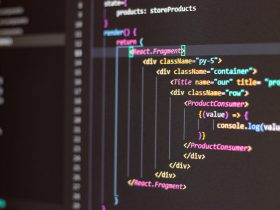Machine learning has emerged as a disruptive force that is revolutionizing various industries in today’s digital world. Its ability to process vast amounts of data and learn from patterns is proving to be a game-changer, unlocking new insights and driving innovation across diverse sectors.
Machine learning is a subset of artificial intelligence (AI) that focuses on the development of algorithms and models that enable computers to learn and make decisions without being explicitly programmed. By analyzing data, identifying patterns, and making predictions, machine learning algorithms are reshaping the way businesses operate, making them more efficient, productive, and competitive.
One of the key advantages of machine learning is its ability to process and analyze Big Data. With the proliferation of digital technologies, organizations have access to an unprecedented amount of data, but extracting valuable insights from such massive volumes of information has been a challenge. Machine learning algorithms, however, are capable of processing this data quickly and efficiently, identifying hidden patterns and trends that may not be discernible to humans. By leveraging these insights, businesses can make better-informed decisions, identify new opportunities, and optimize their operations.
In the healthcare industry, machine learning is proving to be a game-changer by improving diagnostic accuracy and treatment outcomes. By analyzing vast amounts of medical data, including patient records, lab results, and research papers, machine learning algorithms can identify patterns and relationships, leading to more accurate diagnoses and personalized treatment plans. This technology has the potential to transform the current healthcare system, reducing costs, improving patient outcomes, and saving lives.
In the financial sector, machine learning is revolutionizing fraud detection and prevention. Traditional rule-based systems are often unable to keep up with the evolving techniques used by fraudsters. Machine learning algorithms, on the other hand, can analyze thousands of variables simultaneously and detect anomalies or patterns indicative of fraudulent activity. This proactive approach enables organizations to identify potential threats in real-time, preventing financial losses and protecting customer data.
In the retail industry, machine learning is enabling personalized marketing and improving customer experiences. By analyzing customer data, including browsing histories, purchase patterns, and social media interactions, machine learning algorithms can identify individual preferences and make personalized product recommendations. This not only enhances customer satisfaction but also drives sales and customer loyalty.
Machine learning also has the potential to transform transportation and logistics by optimizing routes, reducing fuel consumption, and improving delivery efficiency. By analyzing historical data, traffic patterns, weather conditions, and other relevant factors, machine learning algorithms can calculate the most efficient routes and predict delivery times, improving overall operational efficiency and customer satisfaction.
Despite its numerous benefits and potential applications, machine learning does come with its own challenges. The quality of the data used to train machine learning algorithms is crucial, as inaccurate or biased data can lead to flawed predictions and decisions. Ethics and privacy concerns also need to be addressed to ensure the responsible use of machine learning technologies.
Summary
Nevertheless, with advancements in technology and the growing availability of data, machine learning is poised to continue transforming industries and unlocking new possibilities in today’s digital world. Embracing the power of machine learning can enable businesses to stay ahead of the competition, make informed decisions, and navigate the ever-evolving digital landscape. The potential for game-changing innovation is immense, and those who harness the power of machine learning will undoubtedly emerge as leaders in their respective fields.



















Leave a Reply